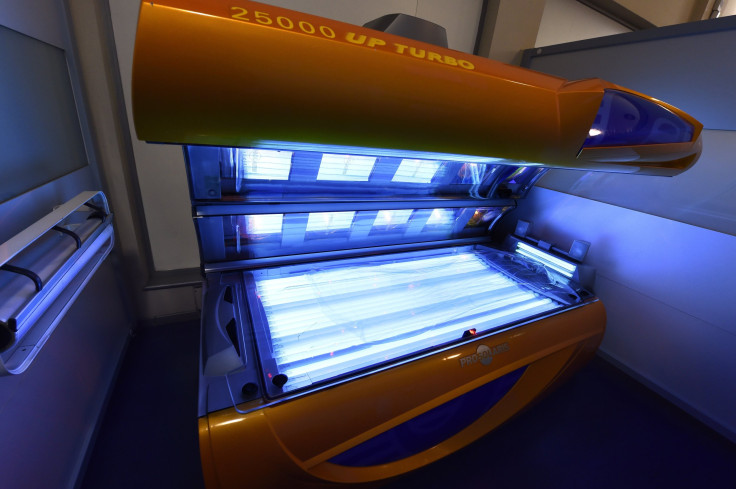FDA Proposes Ban On Tanning For Anyone Under 18

The U.S. Food and Drug Administration proposed a ban on tanning for anyone under the age of 18 Friday. Dermatologists immediately endorsed the agency’s efforts, which they say will lower the long-term risk of skin cancer for millions of Americans. The move will have a dramatic impact on the nation’s $3 billion tanning industry since about 1.6 million minors attend tanning sessions each year.
Under the new rule, even adults who wished to tan indoors will be required to sign a statement that says they understand and accept the risks. In addition, the agency wants to require tanning bed manufacturers to build a “panic button” or emergency off switch into each bed, and force protective eyewear manufacturers to abide by stricter standards to divert more harmful rays. Lastly, officials said tougher warning labels and signs should be posted on tanning beds and in salons.
Nationwide, the FDA estimates there are 18,000 to 19,000 tanning salons and 15,000 to 20,000 other facilities that offer tanning sessions, such as spas or health clubs, which would be affected by the proposal if it is implemented. The new rule comes after the Affordable Care Act instituted a 10 percent tax on all tanning appointments regardless of age.
In recent years, the risks of tanning have become more widely understood among both scientists and consumers. At least 42 states already have age-related or other restrictions on tanning in place. For example, in both New York and New Jersey, minors less than 17 years old are prohibited from tanning. The American Academy of Pediatrics recommends anyone less than 18 years of age avoid it altogether.
Indoor tanning has been linked strongly to an increased risk of skin cancer. In fact, people who use tanning beds are 59 percent more likely to develop melanoma, the most deadly form of skin cancer, than those who abstain, according to the American Academy of Dermatology. More than a million people develop skin cancer and about 8,000 die from melanoma each year.
People who use tanning beds receive a particularly intense exposure to UV radiation, which is the same type of radiation that beams down from the sun. However, a tanning bed can expose users to doses of radiation that are about 12 times as high as those they might receive from the sun.
These rays are harmful to cellular DNA and can cause mutations that lead to skin cancer. Since the damaging effects of UV radiation build up over time, people who start tanning at a young age are at a greater risk of developing skin cancer later in life than even those who tan only as adults.
The proposed rule will accepted or rejected by the agency following a 90-day public comment period.
© Copyright IBTimes 2025. All rights reserved.






















